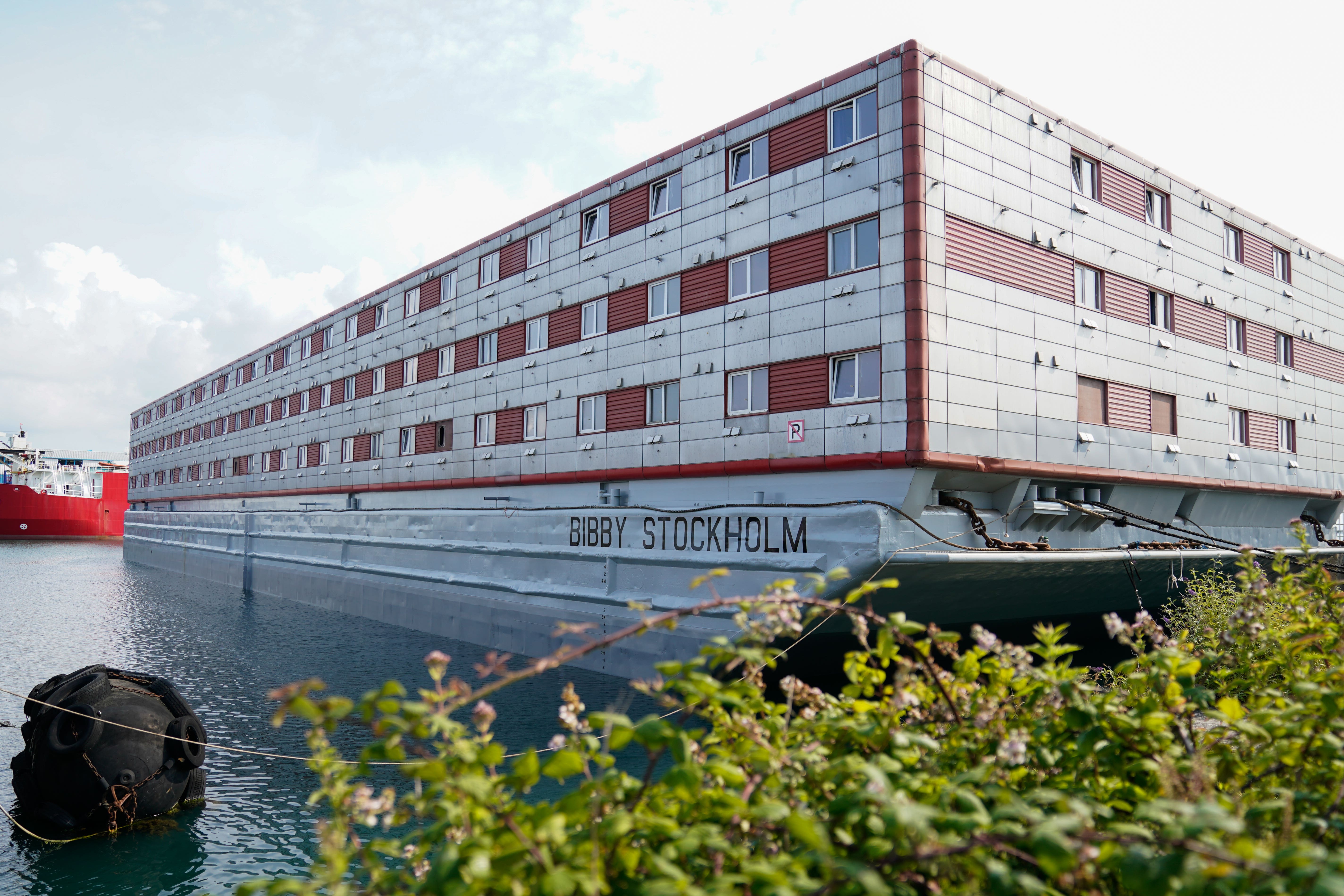An empty vessel is an unfortunate metaphor for Suella Braverman’s migrant policy
The ‘Bibby Stockholm’ fiasco shows the government can’t even competently fight its own culture war, says Sean O’Grady


Bibby Stockholm, the accommodation barge chartered by the Home Office to house asylum seekers, is moored off Dorset but remains empty over fire safety concerns. Like the Rwanda refugee deportation scheme, the barge seems to be in a state of almost permanent limbo – a symbol, critics say, of the stasis that has overtaken the government’s migration policy. Even assuming that the barge and the Rwanda scheme become operational, they will be insufficient to stem the flow of irregular migration. Thus it is increasingly unlikely that Rishi Sunak will fulfil his ambitious pledge to “Stop the Boats”. If the prime minister is hoping such culture wars issues will turn around his party’s dismal poll ratings, he is likely to be disappointed.
Why does it matter?
Reputations are at stake. An empty vessel is an unfortunate metaphor for the home secretary, Suella Braverman, whose attempts to stem migration have been remarkably ineffective. Indeed, the barge is such an obvious and embarrassing symbol of failure that it risks discrediting the government more widely. Most obvious and immediately, it seems that the Home Office did not in fact make sure that the Bibby Stockholm was safe for human habitation on the scale envisaged. Warnings from the fire brigades union that the vessel is a “floating Grenfell” have been dismissed by deputy prime minister, Oliver Dowden, as politically motivated. But the objections from the independent Health and Safety Executive were impossible to ignore. The first arrivals onto the vessel might reportedly begin from Monday.
Anyone still listening to such excuses might well wonder why such things had not been taken care of long ago. After all, the use of ‘prison ships’ and the like has been under discussion since 2020 when Priti Patel was home secretary. The government just doesn’t seem able to get anything done, and overpromising while underdelivering is a fast track to electoral ruin.
Will the barge win the next election for Sunak?
Public services and the economy are more critical considerations for most of the electorate, and those who rank migration high in their concerns haven’t yet been persuaded that Sunak has a grip on it. In drawing further attention to controlling migration, and tying his personal future to it, Sunak is running a high-risk strategy.
Even if the Bibby Stockholm were running as smoothly as a Caribbean luxury cruise ship, or if flights were taking off for Rwanda every week, the Conservatives might still find it hard to rebuild trust in their approach. David Cameron’s almost casual pledge to get migration, legal and otherwise, down to tens of thousands has never been met and was eventually abandoned by Boris Johnson at the 2019 election. Even Brexit, which was supposed to allow Britain to ‘take back control’ over its borders, hasn’t had the desired effect.
In such a condition of prolonged and persistent failure, polling suggests that voters have even less faith in Conservative policies than Labour’s, and it seems unlikely that such a chasm of confidence can be quickly overcome. Indeed, the disappointment with the Tories is most pronounced in those areas where migration has been a more prominent issue, such as the so-called Red Wall seats. Frankly, the barge and the Rwanda scheme, both tiny in capacity in relation to the backlog of 92,000 claimants, look like cynical gimmicks. For many voters, none of the parties have credible answers.
Does Labour have a plan?
Ministers chant that Labour doesn’t, but strictly speaking it does. Shadow home secretary Yvette Cooper says she would clear the backlog of cases and thus the huge demand for temporary accommodation, by putting more resources into processing cases, although where these resources (staff) would be found isn’t obvious. Cooper also argues that safe and secure routes from abroad would be established, meaning hazardous journeys to the UK to claim asylum in person would be unnecessary. Sometimes Labour also makes the case that migration would help solve chronic labour market shortages.
What Labour doesn’t say is whether there would ever be any cap on such perfectly genuine claims; by contrast, Sunak has made it clear Britain’s obligations will be limited to what local authorities advise is practical, and confined to bespoke schemes run with the UN High Commissioner for Refugees. In the end, irregular and regular migration is a numbers game.
Arguably – and cases will continue to go to court – the Sunak cap is unlawful under the European Convention on Human Rights. The ‘lefty lawyers’ he complains of may yet thwart his policy, albeit handing him an alibi in the process.
What does the prime minister say?
In a worrying echo of Liz Truss’ experiments with the public finances, Sunak pleads that “this is an example of me doing something different that hasn’t been tried before to help solve a serious problem”. Even if that were true, the prime minister seems to mistake novelty for effectiveness.
What happened last time floating accommodation was tried?
It didn’t work. Now almost forgotten, and to Labour’s discomfiture, an actual prison ship was used by the Blair government as a ‘temporary’ measure that eventually lasted about a decade. HMP Weare was an adult male/category C prison ship, also berthed in Portland Harbour. Like the Bibby Stockholm, it was an accommodation barge. It was opened as a stopgap in 1997 and finally shut in 2006. Before closure, conditions on board were described as “oppressive and cramped” by the chief inspector of prisons who said there was not enough room for exercise and that it was “literally and metaphorically a container”. The vessel was last heard of in Nigeria.






Join our commenting forum
Join thought-provoking conversations, follow other Independent readers and see their replies
Comments